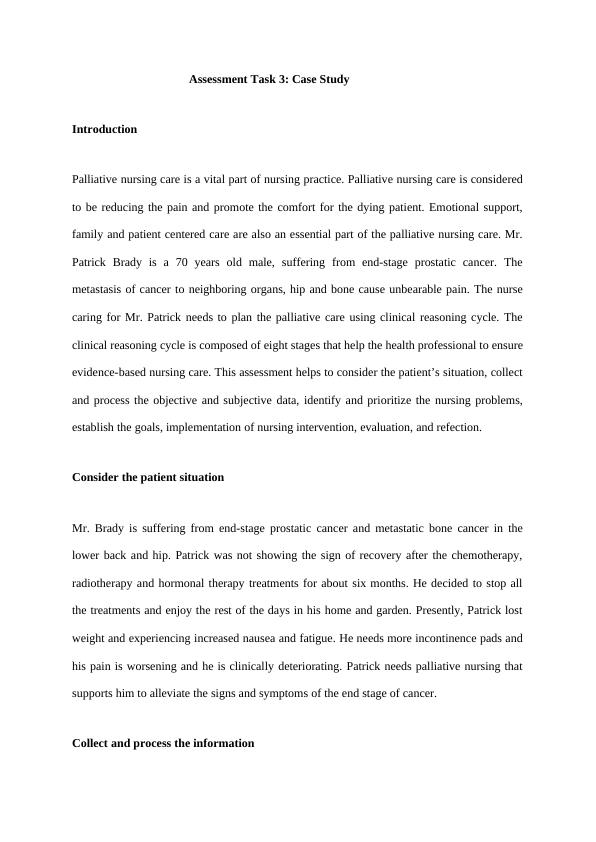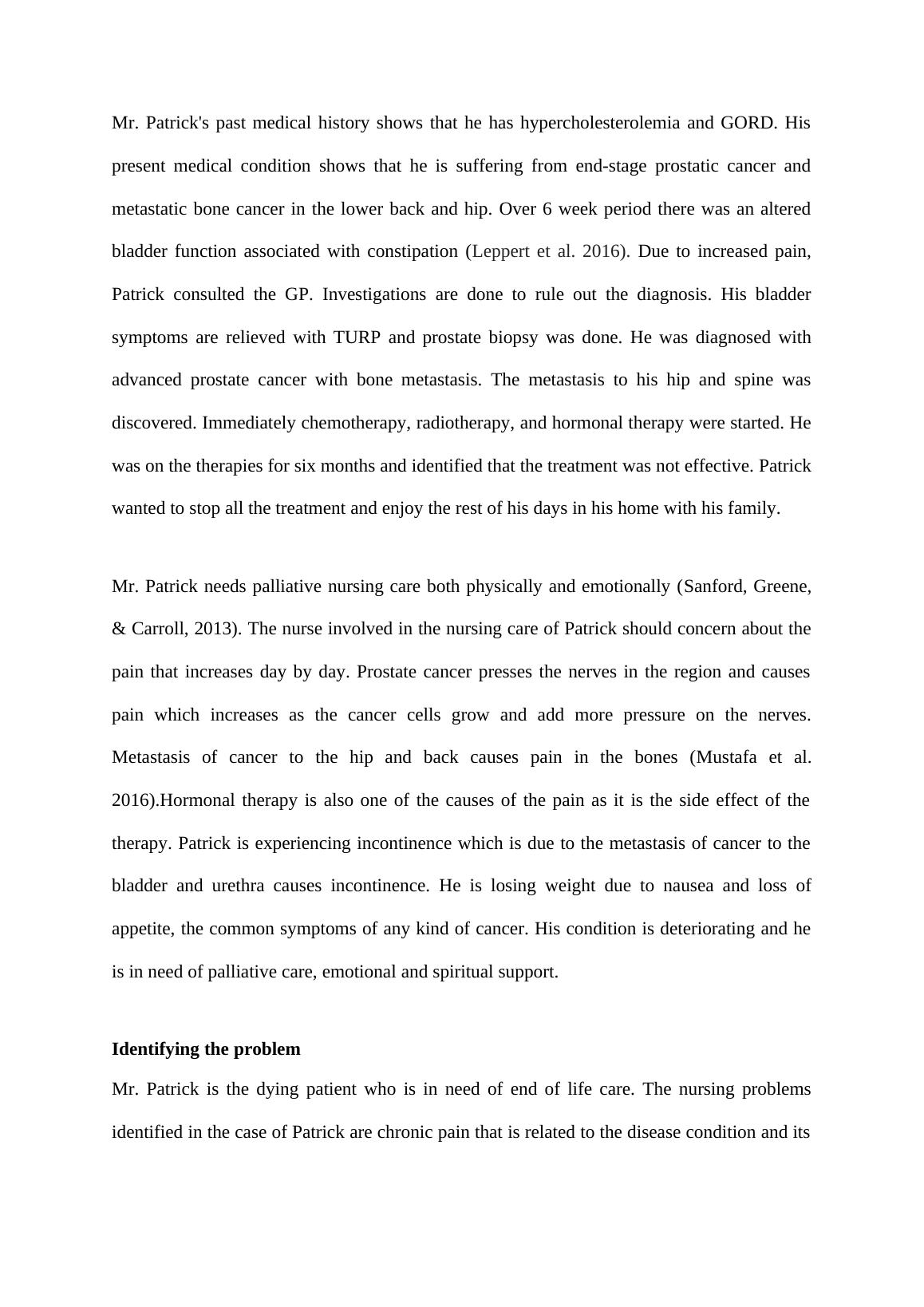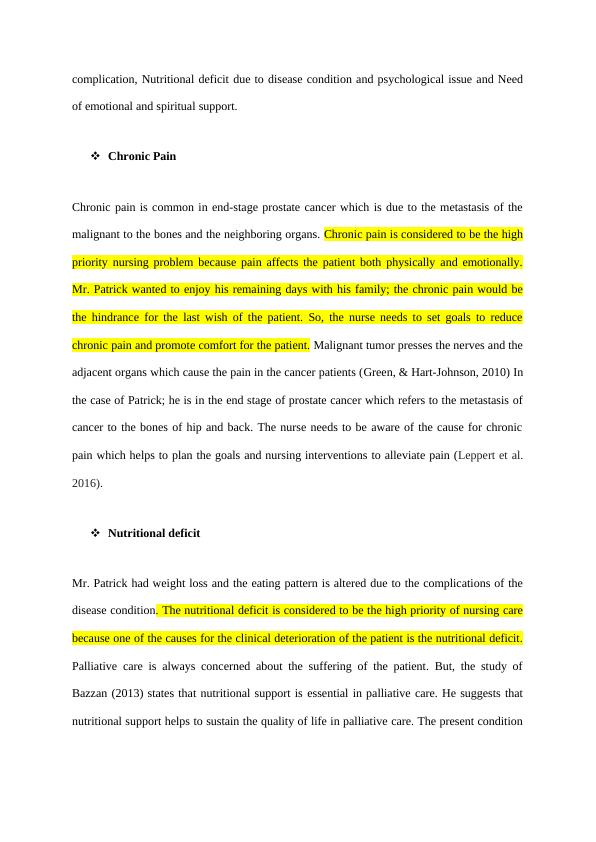Palliative Nursing Care Case Study 2022
Discuss the provision of ethical, legal, evidence-based, holistic person-centred care in a case study of a patient with end stage prostatic cancer and metastatic bone cancer.
10 Pages2774 Words34 Views
Added on 2022-09-28
Palliative Nursing Care Case Study 2022
Discuss the provision of ethical, legal, evidence-based, holistic person-centred care in a case study of a patient with end stage prostatic cancer and metastatic bone cancer.
Added on 2022-09-28
ShareRelated Documents
End of preview
Want to access all the pages? Upload your documents or become a member.
Assessment and Management of Palliative Care: A Case Study of Metastatic Breast Cancer
|8
|2103
|119
Prostate Cancer: Risk Factors, Pathophysiology, Clinical Manifestations, Diagnostic Tests, and Treatment
|2
|539
|399
Nursing Assignment - Prostate Cancer
|9
|3383
|115
Prostate Cancer: Risk Factors, Pathophysiology, Diagnostic Tests and Treatment Modalities
|5
|1566
|393
Pastoral Care in Loss - Assignment
|10
|3141
|251
Nursing Case Study - A Clinical Reflection
|7
|1907
|215



